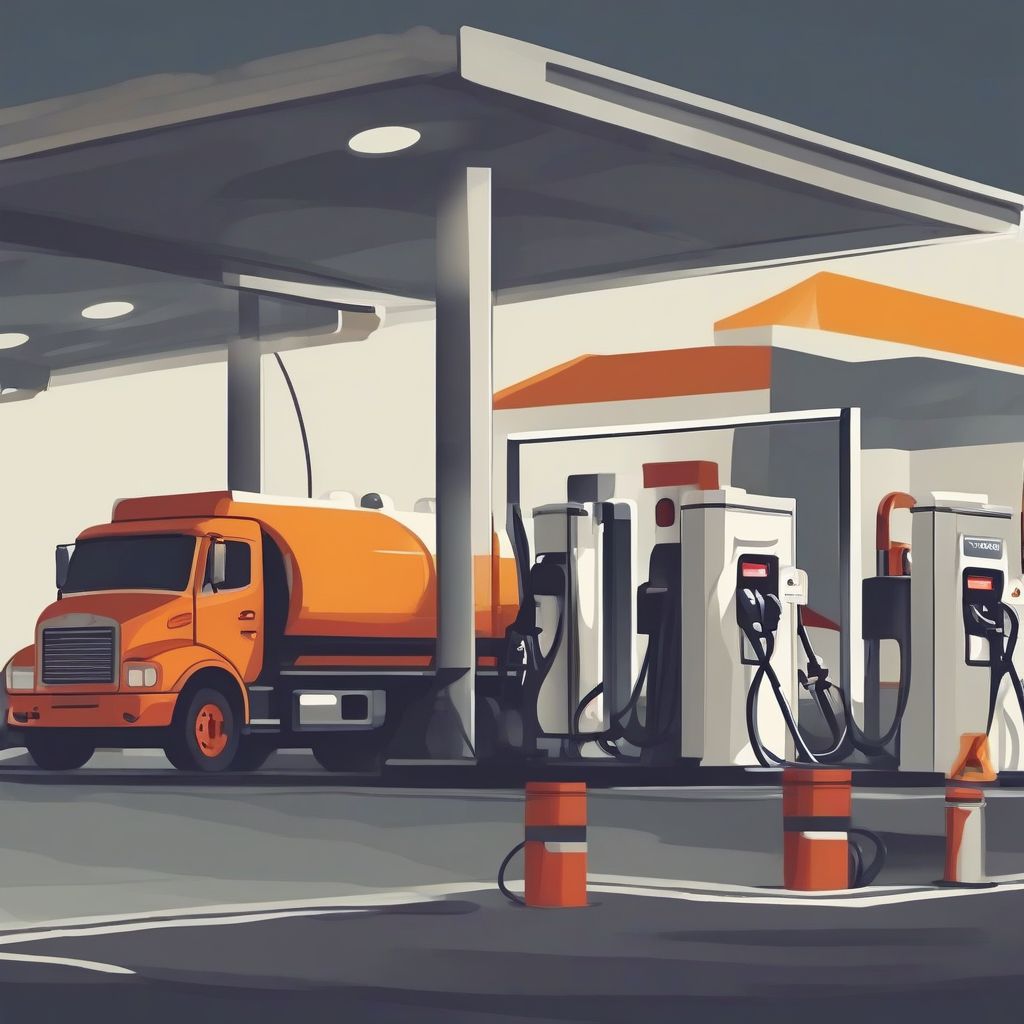In today’s fast-paced business world, managing expenses effectively is crucial for success. For businesses that rely on transportation, fuel costs can take a significant bite out of the budget. This is where Fleet Card Gas Stations come in, offering a smart and strategic solution to optimize fuel expenditure and streamline operations.
Understanding Fleet Card Gas Stations
Fleet card gas stations are more than just places to fill up your company vehicles. They are part of a comprehensive system designed to provide businesses with greater control, transparency, and savings on fuel expenses. But what exactly are fleet cards, and how do they differ from regular credit cards?
A fleet card is a specialized payment card issued to businesses to manage and monitor fuel purchases for their fleet vehicles. Unlike personal credit cards, fleet cards are typically restricted to fuel and vehicle-related expenses, such as gas, diesel, maintenance, and tolls. This targeted approach provides businesses with several advantages:
- Cost Savings: Fleet cards often come with negotiated fuel discounts and rebates, helping businesses save significantly on fuel expenses over time.
- Enhanced Control: Fleet card programs allow businesses to set spending limits, restrict fuel types, and monitor transactions in real-time, preventing unauthorized use and reducing the risk of fraud.
- Simplified Accounting: With detailed transaction reports and consolidated billing, fleet cards streamline accounting processes and simplify expense tracking for businesses.
How Fleet Card Gas Stations Work
Fleet card gas stations are simply gas stations that accept fleet cards as a form of payment. These gas stations can be found across major brands and independent retailers, providing businesses with a wide range of fueling options.
When a driver uses a fleet card at a participating gas station, the transaction is electronically recorded, capturing crucial data such as:
- Vehicle Identification: The fleet card is linked to a specific vehicle, allowing businesses to track fuel consumption and identify potential issues with individual vehicles.
- Fuel Type and Quantity: The type and amount of fuel purchased are recorded, providing valuable insights into fuel efficiency and potential areas for improvement.
- Time and Location: The date, time, and location of each transaction are logged, enabling businesses to monitor routes and ensure drivers are adhering to company policies.
 Fuel Truck at a Gas Station
Fuel Truck at a Gas Station
Benefits of Using Fleet Card Gas Stations
Adopting a fleet card program and utilizing fleet card gas stations can offer numerous benefits for businesses of all sizes, especially those with large fleets or frequent fuel expenses. Here are some key advantages:
1. Cost Reduction through Fuel Discounts and Rebates
One of the most significant benefits of fleet cards is the opportunity to save money on fuel. Fleet card providers negotiate discounted fuel prices with participating gas stations, allowing businesses to purchase fuel at lower rates than the average consumer.
Additionally, many fleet card programs offer rebates based on fuel volume purchased. These rebates can accumulate significantly over time, further reducing overall fuel expenditure.
2. Improved Fuel Management and Expense Control
Fleet cards provide businesses with unparalleled control over their fuel expenses. By setting spending limits and restricting fuel types, businesses can prevent unauthorized purchases and ensure drivers are using the most cost-effective fuel options.
Moreover, real-time transaction monitoring allows businesses to identify suspicious activity quickly, minimizing the risk of fraud and misuse.
3. Streamlined Accounting and Reporting
Managing fuel expenses manually can be time-consuming and prone to errors. Fleet card programs simplify this process by providing businesses with detailed transaction reports and consolidated billing statements.
These reports offer valuable insights into fuel consumption patterns, identify potential areas for improvement, and make it easier to track expenses for tax purposes.
4. Enhanced Security and Fraud Prevention
Fleet cards are equipped with advanced security features to prevent unauthorized use and fraud. These features may include:
- PIN protection: Requiring drivers to enter a unique PIN code for each transaction.
- Card restrictions: Limiting card usage to specific days, times, and locations.
- Real-time alerts: Notifying businesses immediately of any suspicious activity.
5. Increased Driver Convenience and Efficiency
Fleet cards eliminate the need for drivers to carry large amounts of cash or use their own personal credit cards for fuel purchases. This not only enhances driver convenience but also simplifies expense reporting and reimbursement processes.
Choosing the Right Fleet Card for Your Business
With numerous fleet card options available, selecting the right one for your business can seem daunting. Here are some key factors to consider:
- Network Coverage: Ensure the fleet card is accepted at a wide network of gas stations convenient for your business operations.
- Fuel Discounts and Rebates: Compare fuel discounts and rebate programs offered by different providers.
- Card Features and Controls: Evaluate the level of control and security features offered, such as spending limits, fuel type restrictions, and real-time transaction monitoring.
- Fees and Charges: Consider any annual fees, transaction fees, or other charges associated with the fleet card program.
- Customer Support: Choose a provider with reliable customer support and online resources to assist with any questions or issues.
Conclusion
Fleet card gas stations are essential resources for businesses seeking to optimize their fuel expenses and streamline operations. By leveraging the power of fleet card programs, businesses can gain greater control over their fuel budget, reduce costs through discounts and rebates, simplify accounting processes, and enhance security.
When choosing a fleet card program, it’s crucial to consider your specific business needs and compare different providers to find the best fit. By carefully evaluating the available options and selecting the right program, businesses can unlock significant savings, improve efficiency, and fuel their success in a competitive marketplace.